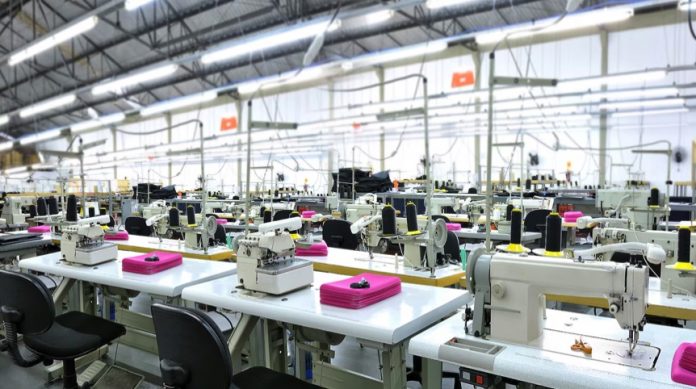เมื่อวันพฤหัสบดี สหรัฐฯ ได้สั่งห้ามการนำเข้าจากผู้ค้าผ้าฝ้ายและคลังสินค้าของจีน 26 ราย เพื่อพยายามลดการนำสินค้าที่ชนกลุ่มน้อยอุยกูร์ที่ผลิตโดยใช้แรงงานบังคับให้น้อยลงในสหรัฐฯ บริษัทเหล่านี้ได้ถูกเพิ่มเข้าไปในบัญชีรายชื่อนิติบุคคลภายใต้พระราชบัญญัติป้องกันแรงงานบังคับชาวอุยกูร์ ซึ่งจำกัดการนำเข้าสินค้าที่เชื่อมโยงกับสิ่งที่รัฐบาลสหรัฐฯ พิจารณาว่าเป็นการฆ่าล้างเผ่าพันธุ์ชนกลุ่มน้อยที่กำลังดำเนินอยู่ในภูมิภาคซินเจียงของจีน เจ้าหน้าที่สหรัฐฯ เชื่อว่าทางการจีนได้จัดตั้งค่ายแรงงานสำหรับชาวอุยกูร์และชนกลุ่มน้อยมุสลิมอื่นๆ ในซินเจียง แต่ปักกิ่งปฏิเสธการละเมิดดังกล่าว
บริษัทผ้าฝ้ายหลายแห่งจดทะเบียนในตลาดหลักทรัพย์ตั้งอยู่นอกซินเจียง แต่ใช้ฝ้ายจากภูมิภาคนี้ กระทรวงความมั่นคงแห่งมาตุภูมิของสหรัฐฯ ระบุ การกำหนดเหล่านี้ช่วย “บริษัทที่มีความรับผิดชอบในการดำเนินการตรวจสอบสถานะ เพื่อว่าเมื่อร่วมมือกันแล้ว เราจะสามารถกันผลิตภัณฑ์ที่ใช้แรงงานบังคับออกนอกประเทศของเราได้” Alejandro Mayorkas รัฐมนตรีกระทรวงความมั่นคงแห่งมาตุภูมิ กล่าวในแถลงการณ์ โฆษกสถานทูตจีนในกรุงวอชิงตันวิพากษ์วิจารณ์การกระทำดังกล่าว โดยระบุว่า “สิ่งที่เรียกว่า ‘พระราชบัญญัติป้องกันแรงงานบังคับชาวอุยกูร์’ เป็นเพียงเครื่องมือสำหรับนักการเมืองสหรัฐฯ เพียงไม่กี่คนที่จะขัดขวางเสถียรภาพในซินเจียงและขัดขวางการพัฒนาของจีน”
นับตั้งแต่มีการประกาศใช้บัญชีรายชื่อนิติบุคคลตามพระราชบัญญัติป้องกันแรงงานอุยกูร์ในปี 2564 วอชิงตันได้จำกัดการนำเข้าจาก 65 หน่วยงาน ตามข้อมูลของกระทรวงความมั่นคงแห่งมาตุภูมิ Department of Homeland Security (DHS) “เราสนับสนุนการดำเนินการของ DHS ในวันนี้ในการเพิ่มรายชื่อนิติบุคคลของพระราชบัญญัติป้องกันแรงงานอุยกูร์เกือบสองเท่า แม้ว่าเราจะตระหนักดีว่ารายชื่อปัจจุบันเป็นเพียงส่วนเล็กๆ ของธุรกิจที่เกี่ยวข้องกับการบังคับใช้แรงงาน” ผู้แทนคริส สมิธและวุฒิสมาชิกเจฟฟ์ เมอร์คลีย์ ประธานของ คณะกรรมาธิการรัฐสภา-บริหารทั้งสองฝ่ายในจีน ระบุในถ้อยแถลง ผู้ร่างกฎหมายเรียกร้องให้ DHS ขึ้นบัญชีดำบริษัทจีนในอุตสาหกรรมโพลีซิลิคอน อลูมิเนียม พีวีซี และเรยอน รวมถึงบริษัทอื่นๆ ในส่วนอื่นๆ ของเอเชียที่ผลิตสินค้าสำหรับตลาดสหรัฐฯ ด้วยปัจจัยการผลิตที่มาจากซินเจียง
The U.S. bans imports from 26 Chinese textile companies over concerns of suspected Uyghur forced labour.

On Thursday, the United States barred imports from 26 Chinese cotton traders and warehouse facilities in an effort to remove goods produced with forced labour by Uyghur minorities from the U.S. supply chain. These companies have been added to the Uyghur Forced Labor Prevention Act Entity List, which restricts imports of goods linked to what the U.S. government considers an ongoing genocide of minorities in China’s Xinjiang region. U.S. officials believe that Chinese authorities have set up labour camps for Uyghurs and other Muslim minority groups in Xinjiang. Beijing denies any such abuses.
Many of the cotton companies listed are based outside Xinjiang but source their cotton from the region, the U.S. Department of Homeland Security stated. These designations aid “responsible companies in conducting due diligence so that, together, we can keep products of forced labour out of our country,” said Alejandro Mayorkas, Secretary of Homeland Security, in the statement. A spokesperson for the Chinese embassy in Washington criticised the action, stating, “The so-called ‘Uyghur Forced Labor Prevention Act’ is merely a tool for a few U.S. politicians to disrupt stability in Xinjiang and hinder China’s development.”
Since the Uyghur Forced Labor Prevention Act Entity List was enacted in 2021, Washington has restricted imports from 65 entities, according to the Department of Homeland Security. “We strongly support DHS’s action today to nearly double the Uyghur Forced Labor Prevention Act’s Entity List, though we recognize that the current list represents only a small portion of businesses involved in forced labour,” said Representative Chris Smith and Senator Jeff Merkley, chairs of the bipartisan Congressional-Executive Commission on China, in a statement. The lawmakers urge DHS to also blacklist Chinese companies in the polysilicon, aluminium, PVC, and rayon industries, as well as any companies in other parts of Asia making goods for the U.S. market with inputs sourced from Xinjiang.
By CNN NEWS

















